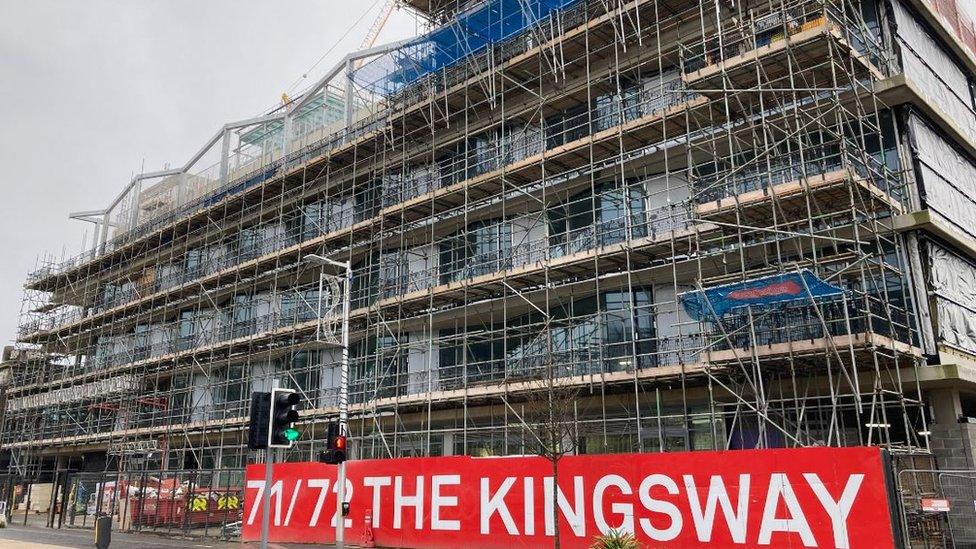Swansea council debt could rise to £750m through borrowing
- Published

Swansea council is hundreds of millions of pounds in debt
As much as £50m could be borrowed by Swansea council over the next three years to take its level of debt towards £750m.
As of last September the authority owed £694m, according to a UK Public Accounts Committee report.
Of Wales' 22 councils only Cardiff council, at £858m, had more debt - though Swansea had more per resident at £2,917 per head.
There is no suggestion Swansea council is in financial trouble.
The cash would be for projects like the ongoing restoration of the Hafod Copperworks site, the upgrade of railway arches and tunnels on The Strand, in the city centre, and contributions towards new schools.
If the borrowing happens, the debt level would increase to around £743.8m, according to the Local Democracy Reporting Service.
This would still be below the current £883m threshold.
Liberal Democrat opposition leader, Chris Holley, said he was worried by the debt size.
"The amount we are borrowing is extraordinary," Mr Holley said.

Councillor Chris Holley said he was worried by the debt size
"The last time we borrowed such a lot of money was in the 1920s when the old town council bought land in the town centre, and it was only paid off in around 2002-03."
Mr Holley wanted to see more evidence of full-time jobs being created.
Leader of the Labour-controlled council, Rob Stewart, said expensive debt taken out when interest rates were high had been paid off.
The council said borrowing costs were now millions of pounds a year less than they otherwise would have been.

New offices on The Kingsway, Swansea, are among the council's projects
Meanwhile in England MPs have warned councils are facing an "out of control" financial crisis.
Swansea council said: "The impact of borrowing for major capital projects for the people of Swansea, for jobs and the economy can be seen every day at new schools like Ysgol Tan y Lan, Clase, hundreds of new affordable homes for rent, as well as major city centre investments like the Swansea Arena, and the new Castle Square Gardens starting this year.
"Borrowing to spend on these vital projects ensures we are doing all we can so Swansea is well-placed to benefit when the UK economy picks up."
Related topics
- Published1 February 2024

- Published29 September 2023

- Published13 September 2023
